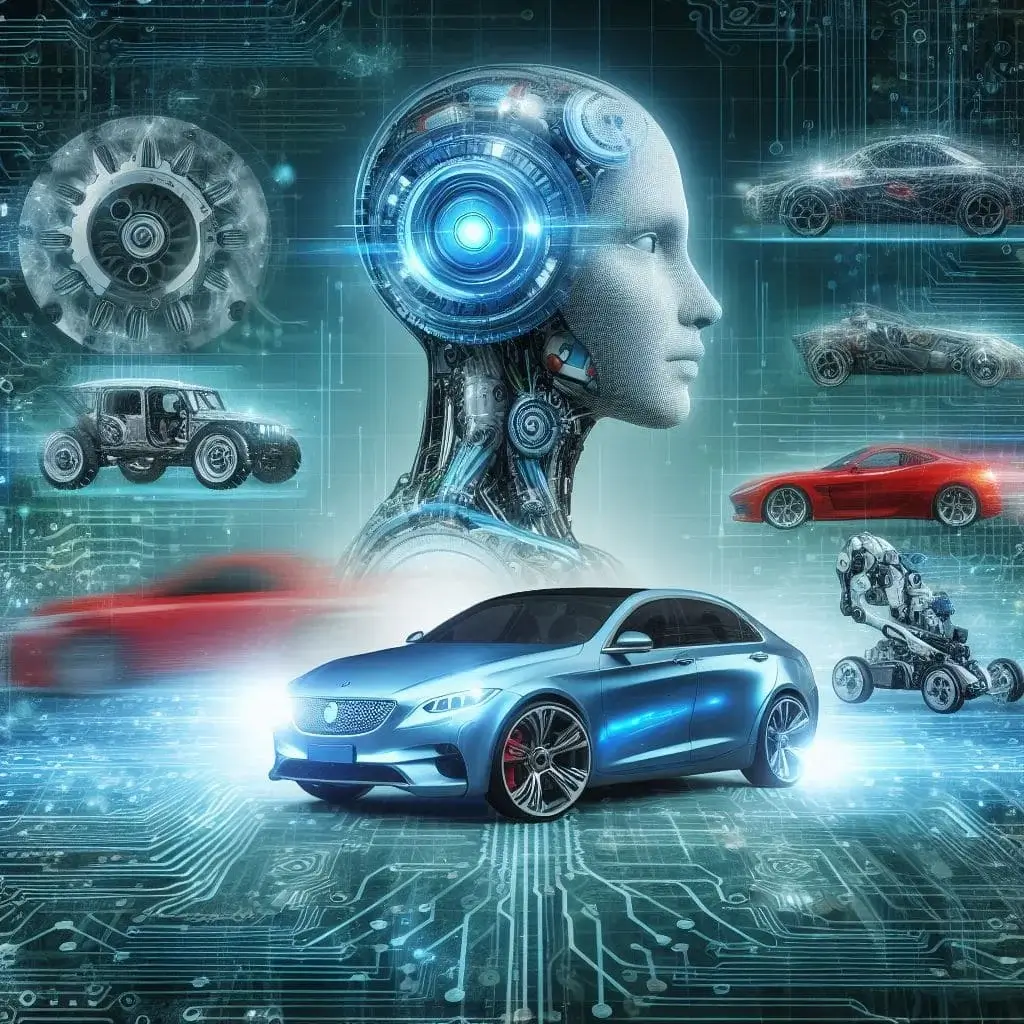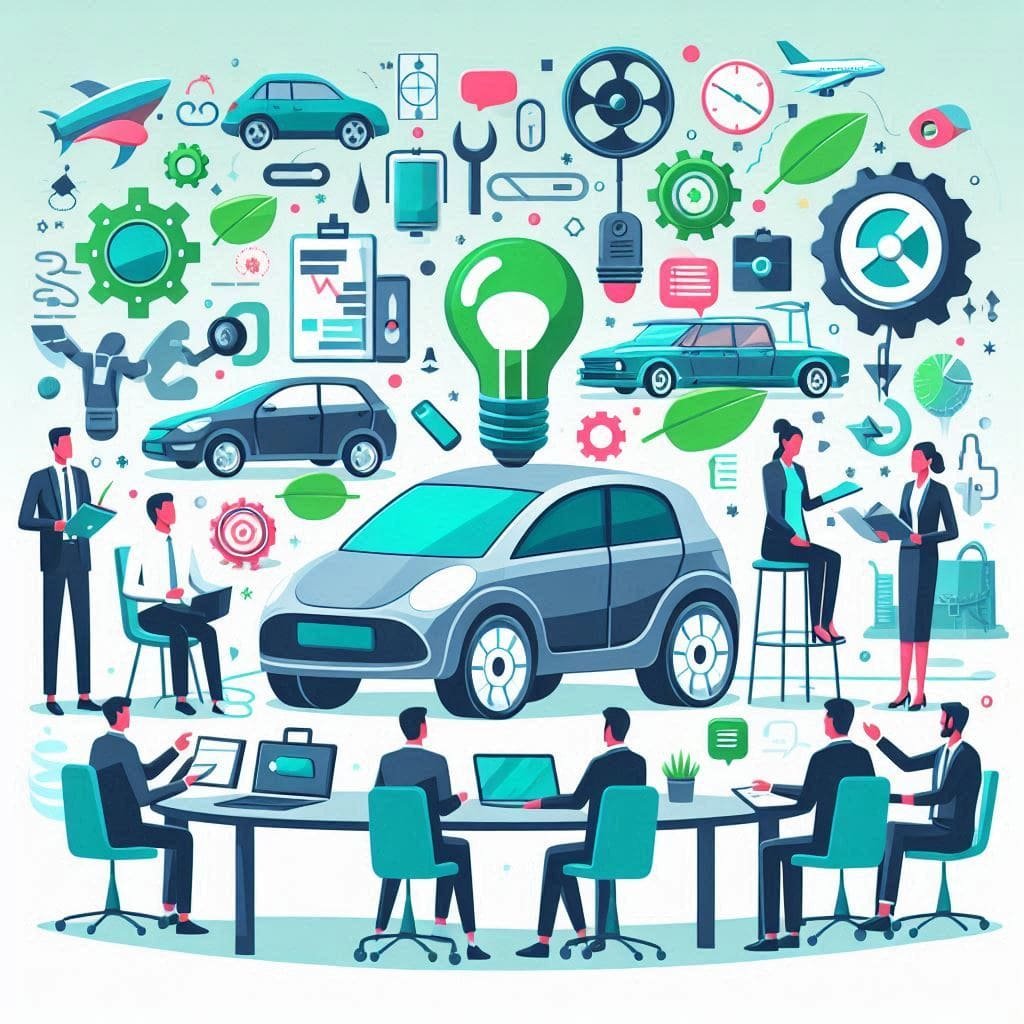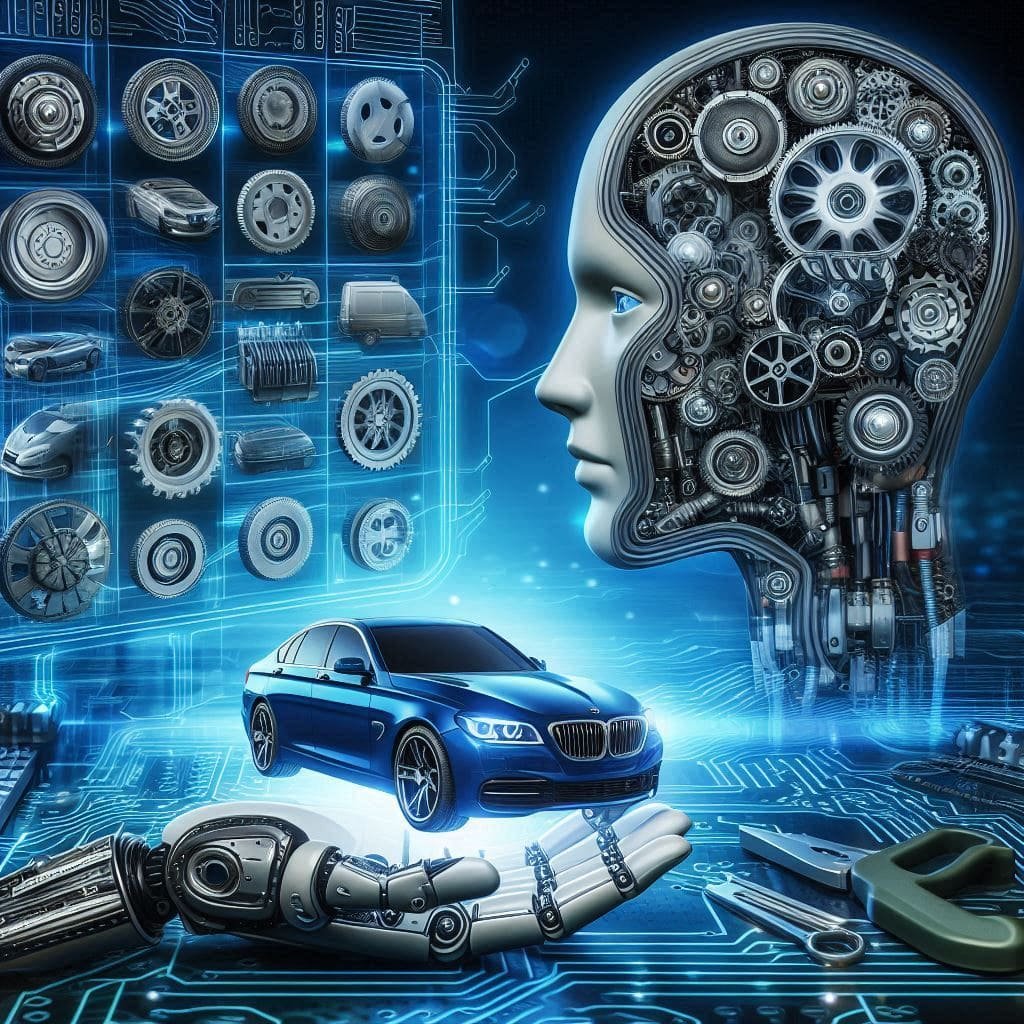The Role of Artificial Intelligence in Modern Automobile Engineering
- Posted: May 30, 2024
- Updated: May 30, 2024
- Automobile
- By Rahil
Artificial Intelligence (AI) has changed many industries, and automobile engineering is one of the best examples. AI has brought big improvements to how we design, build, and run vehicles. It has made cars safer, more efficient, and even capable of driving themselves. In this blog post, we will look at how AI is changing automobile engineering, showing its different uses and the benefits it brings to the automotive industry.

Introduction to Automobile Engineering
Automobile engineering, also known as automotive engineering, is a specialized branch of vehicle engineering that encompasses the design, development, manufacturing, testing, and repair of automobiles. This multifaceted field integrates elements of mechanical, electrical, electronic, software, and safety engineering. With the advent of AI, automobile engineering is undergoing a transformative shift, enhancing various aspects of the automotive industry and paving the way for future innovations.
How AI is Transforming Automobile Engineering

AI technologies such as machine learning, neural networks, and deep learning are being seamlessly integrated into different stages of automobile engineering. Here’s a detailed examination of the key areas where AI is making a significant impact:
1. Vehicle Design and Development
AI algorithms are revolutionizing vehicle design and development processes by analyzing vast amounts of data to optimize these processes. Here’s how AI contributes to vehicle design and development:
- Predictive Analytics: AI uses historical data to predict future trends and consumer preferences, enabling engineers to design vehicles that meet market demands more accurately. By anticipating what features consumers will desire, manufacturers can stay ahead of the curve.
- Generative Design: AI-powered software can create multiple design options based on specific parameters and constraints. This generative design process offers innovative solutions that human engineers might not conceive, leading to more efficient and aesthetically pleasing designs.
- Simulation and Testing: AI accelerates the simulation and testing phases by quickly analyzing how different designs perform under various conditions. This reduces the need for physical prototypes, saving time and resources while ensuring the vehicle's performance and safety standards are met.
2. Manufacturing and Production
AI enhances manufacturing efficiency and product quality in several ways, revolutionizing how vehicles are produced:
- Robotics and Automation: AI-driven robots are employed to handle complex assembly tasks with high precision, improving production speed and consistency. These robots can work tirelessly and with a level of accuracy that surpasses human capabilities.
- Predictive Maintenance: AI continuously monitors machinery in real-time, predicting potential failures and scheduling maintenance to prevent costly downtime. This proactive approach ensures that production lines operate smoothly without unexpected interruptions.
- Quality Control: AI systems inspect components for defects with unparalleled accuracy, ensuring only high-quality parts are used in vehicle assembly. This meticulous inspection process enhances the overall reliability and longevity of the vehicles produced.
3. Autonomous Vehicles
Autonomous or self-driving vehicles are perhaps the most prominent application of AI in automobile engineering. Here’s how AI is driving the development of autonomous vehicles:
- Perception and Sensing: AI processes data from a network of sensors, cameras, and radar to understand the vehicle’s surroundings. This allows the vehicle to detect obstacles, pedestrians, and other vehicles, facilitating safe navigation.
- Decision Making: AI algorithms make real-time decisions for navigation, speed control, and obstacle avoidance. These decisions are crucial for ensuring safe and efficient driving, especially in complex and dynamic environments.
- Learning and Adaptation: AI systems in autonomous vehicles continuously learn from new data, improving their performance and safety over time. This adaptive learning capability allows autonomous vehicles to handle a wide range of driving scenarios with increasing proficiency.
4. Driver Assistance Systems
AI enhances driver safety and convenience through advanced driver-assistance systems (ADAS). These systems provide real-time support to drivers, reducing the risk of accidents and making driving more enjoyable:
- Adaptive Cruise Control: Utilizing AI, the vehicle's speed is dynamically regulated to ensure a safe distance from the vehicle ahead, thus enhancing the driving experience with smoother and safer maneuvers.
- Lane Keeping Assist: AI ensures the vehicle stays within its lane by providing steering assistance if the driver starts to drift, reducing the likelihood of unintended lane departures.
- Emergency Braking: AI detects potential collisions and automatically applies the brakes to prevent accidents. This quick response can be the difference between a near-miss and a serious collision.
5. Predictive Maintenance and Diagnostics
AI significantly improves vehicle maintenance and diagnostics, ensuring vehicles remain in optimal condition:
- Fault Detection: AI systems continuously monitor the vehicle’s performance, identifying potential issues before they become serious problems. Early detection allows for timely interventions, preventing costly repairs and breakdowns.
- Maintenance Scheduling: AI predicts when parts will need maintenance or replacement, optimizing the maintenance schedule and reducing unexpected breakdowns. This predictive maintenance approach enhances vehicle reliability and extends its lifespan.
6. Enhanced User Experience
AI personalizes and enhances the in-car experience, making driving more enjoyable and convenient for users:
- Voice Assistants: AI-powered voice assistants allow drivers to control various vehicle functions hands-free, improving safety and convenience. Drivers can make calls, adjust settings, and access information without taking their hands off the wheel.
- Personalized Settings: AI learns driver preferences and automatically adjusts settings such as seat position, climate control, and infotainment options. This personalization ensures that each drive is comfortable and tailored to the individual’s preferences.
- Navigation Systems: AI enhances navigation systems with real-time traffic updates, route optimization, and predictive destination suggestions. These intelligent navigation features help drivers reach their destinations more efficiently and with less stress.
Benefits of AI in Automobile Engineering

The integration of AI in automobile engineering offers numerous benefits, making vehicles safer, more efficient, and more user-friendly. Here are some key advantages:
- Safety: AI technologies improve vehicle safety through advanced driver-assistance systems and autonomous driving capabilities. These systems reduce the likelihood of human error, which is a major cause of accidents.
- Efficiency: AI optimizes vehicle design, manufacturing processes, and maintenance schedules, increasing overall efficiency. This leads to reduced production costs and improved vehicle performance.
- Cost Reduction: By reducing the need for physical prototypes and minimizing downtime through predictive maintenance, AI helps lower production costs. These savings can be passed on to consumers, making vehicles more affordable.
- Customization: AI enables the development of personalized features, enhancing the user experience and meeting individual customer needs. This customization can make vehicles more appealing to a broader range of consumers.
- Innovation: AI drives continuous innovation in vehicle design, features, and capabilities, keeping the automotive industry at the cutting edge of technology. This ongoing innovation ensures that vehicles remain relevant and competitive in a rapidly evolving market.
Challenges and Future Prospects

Despite its numerous benefits, the integration of AI in automobile engineering comes with several challenges that need to be addressed:
- Data Privacy: The extensive data collection required for AI systems raises concerns about user privacy and data security. Ensuring that data is collected, stored, and used responsibly is crucial to gaining consumer trust.
- Regulatory Issues: Autonomous vehicles face regulatory hurdles, as existing laws and regulations need to evolve to accommodate new technologies. Policymakers and industry leaders must work together to create a regulatory framework that supports innovation while ensuring public safety.
- Technical Limitations: AI systems need to handle complex and unpredictable real-world scenarios, requiring ongoing research and development. Continuous improvements in AI algorithms and sensor technologies are necessary to achieve fully autonomous driving.
- Public Acceptance: Gaining public acceptance for AI-driven vehicles can be challenging, especially with concerns about safety and reliability. Educating consumers about the benefits and safety measures of AI in automobiles is essential for widespread adoption.
Looking ahead, the future of AI in automobile engineering is promising. As AI technologies continue to advance, we can expect even greater improvements in vehicle safety, efficiency, and user experience. The automotive industry will likely see more AI-driven innovations, including fully autonomous vehicles and smarter, more connected car ecosystems. These advancements will not only transform how we drive but also how we interact with our vehicles and the world around us.
AI is really important in making cars better nowadays. It helps a lot in designing, making, and running cars. It makes them safer and more efficient and even helps in creating cars that can drive themselves. As AI gets better, cars will keep improving, making our future brighter and full of new ideas.
To learn more about how technology affects different things, take a look at our Technologies Category. We'll be sharing more interesting stuff and updates about the latest cool things happening in tech.

